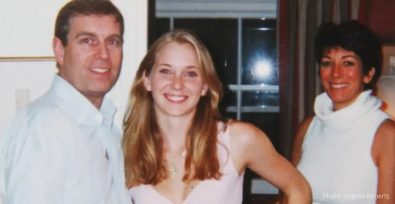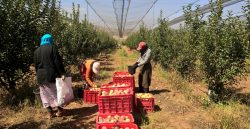*Trigger warning: This article contains mention of rape and violence
The recent arrest of a woman traveling with a newborn she claimed she had just given birth to has shone a light an alarming trend. Babies are being trafficked from West Africa to the UK from what experts are calling “baby factories.” Horrifically, the BBC reports experts feel it is highly likely the cases we know about are the tip of the iceberg.
Claims “difficult to follow and impossible to accept”
Susan claimed when she left for Nigeria, she was pregnant and gave birth to her baby while there. But after DNA tests, consultations with IVF doctors and a lengthy investigation filled with outright lies and false evidence, her claims of being the mother were rejected. Ms. Coker is a social worker in the UK, providing expert reports to family courts in cases like these. She was tasked with investigating Susan’s claims of a miracle baby.
Coker has worked on a dozen similar cases and said:
Money is getting exchanged for children on a large scale, not just in Africa but across the global south.
According to Coker, clinics in these locations offer “packages” for prospective parents. Packages that include falsely registering the baby’s birth and that cost anywhere between $2,500 and $10,000 USD. The evidence Susan provided included a letter from a Nigerian hospital saying she’d given birth there as well as photos and videos which she said showed her in the Nigerian hospital’s labor suite. Whereas when Coker visited the location where Susan said she had given birth, the doctor said he had never seen her.
“Baby farms” tragic for mother and baby
The doctor interviewed by Coker said it’s likely the real mother of the baby in question gave her child up willingly. From Coker’s experience in West Africa, the child may have come from a “baby farm.” These “farms” are buildings where young girls who’ve been kidnapped are raped and forced to give birth repeatedly.
Coker stated:
Sometimes these girls are released, other times they die during childbirth, or are murdered and placed in the grounds of the organization
Surprisingly the practice of “baby farming” is well known. Indeed, in the last five years at least 200 illegal “baby factories” have been shut down by Nigerian authorities. In part because of “evidence of organized child trafficking” the UK government has now restricted adoptions from Nigeria. While helpful, in Coker’s view the British government can do little to stop these atrocious crimes. Subsequently in her words “the issues start in countries where the children are born.” Cases like this are particularly “heinous” said Patricia Durr, CEO of the anti-trafficking charity ECPAT. They deny a child’s right to their identity. Even after Coker’s investigation, the baby’s real parents couldn’t be found.
Stop the commodification of children!
Turning children into a commodity is one of the most egregious forms of modern slavery. It is particularly offensive as it preys on children, who must rely on those around them to keep them safe. Like “baby farms” orphanage trafficking is another form of organized child trafficking.
Orphanage trafficking involves children who may or may not be orphans being kept in orphanages to attract donations and volunteers. Like babies from “baby farms” many are denied their real families, and uprooted from their community and culture. They are also often subjected to neglect, abuse, and forced to live in institutions with profits, not protection and care, as the goal. That’s why at Freedom United we say “NO” to the commodification of children in any form.
We are calling on Congress to amend the TVPRA and recognize orphanage trafficking as modern slavery. Add your voice to ours and help apply pressure on the U.S. government to take a leading role in ending orphanage trafficking and protecting vulnerable children from exploitation.







Freedom United is interested in hearing from our community and welcomes relevant, informed comments, advice, and insights that advance the conversation around our campaigns and advocacy. We value inclusivity and respect within our community. To be approved, your comments should be civil.
Probably they’re not in Nigeria only or for UK’s only.
Once my teenager daughter found an advertisement offering a place for a baby sitter.
She phoned – she should have worked “helping doctors” by well payed illegal labour with a huge freedom in her schedule in a “center” where “healthy newborns” where “temporarily kept”.
I asked my lawyer father to inform the Police.
This was in Vicenza, Italy, sometime in the years 2007-2011.
My God this is horrendous and absolutely heartbreaking for these poor babies. It’s beyond me how people can even think of committing such outrages against women and children, let alone actually being complicit. Satan is alive and well..
Why are wenot aware of this?
That such things are happening in the 21st century shows that scientific advancement alone will lead us nowhere. Perhaps humans have already been replaced by robots who look like humans.
The more I dive into this topic the scarier it gets